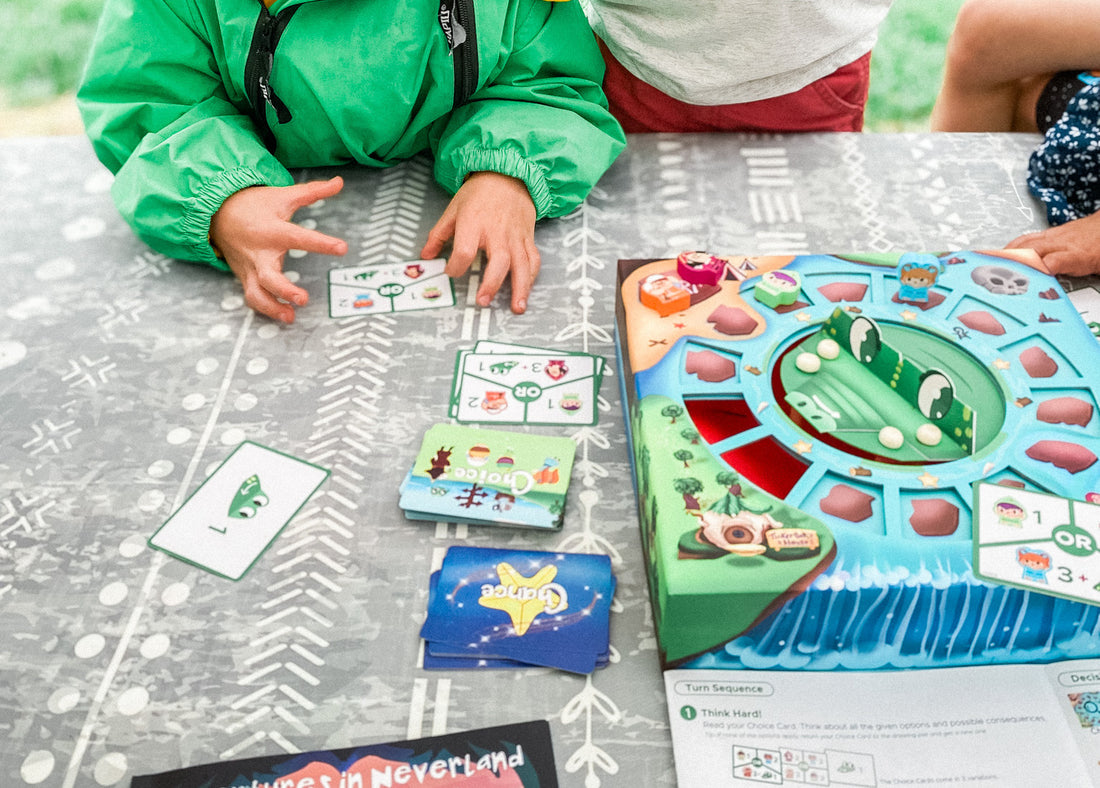
Raising Confident Decision Makers: A Parent's Guide to Guiding Kids Towards Smart Choices
Whether it's a child choosing which toy they want to play with or a teenager deciding on which college to attend, kids of all ages, regardless of how young or old, constantly have to make decisions. Though parents are usually the ones making all the decisions for their kids, we need to give our kids the power and opportunity to make decisions as well. As we get older, our decisions get more difficult and complex, making it crucial for us to help our kids develop their decision making skills at an early age. With practice and time, our little ones will become masters at making decisions!
Tips for Cultivating Decision-Making Skills in Kids

Teaching our kids how to make informed choices not only boosts their confidence but also equips them with a valuable life skills. Check out 5 practical ways to help your child through mastering their decision-making skills.
Encouraging Independence: Allowing Kids to Make Age-Appropriate Choices

As much as we want to make all the decisions for our kids, sometimes we should step back and let them do their thing. When we delegate age-appropriate choices to them, they will not only learn more about becoming responsible individuals, but also gain a sense of confidence through understanding and witnessing positive outcomes from their decisions. The tiny dose of dopamine they'll experience from each positive decision they make will spark a sense of self-confidence within them that will follow them along for the rest of their lives, pushing them to become confident in their decision-making skills and face the world head-on. Of course, giving them their own choices will look different for each child and at each age.
Ideas for Age-Appropriate Choices:
Ages 2-3:
- Which toy to play with
- Which book their parents read before bedtime
Ages 4-5:
- When to shower (right now or 10 minutes later)
- Which vegetable to eat for dinner
Ages 6-8
- When to shower (right now or 10 minutes later)
- Who to befriend
Teaching Critical Thinking: Strategies to Help Kids Evaluate Options

Critical thinking is a huge component of effective decision-making. Encourage your kids to think critically about each decision they make by challenging them to generate a pros and cons list, asking open-ended questions, and encouraging them to consider multiple perspectives. Though engaging in these steps may appear tedious at first, trust us, over time, it will become second nature to them as they master the skills of decision-making.
4 Phrases to Say While Walking Your Child Through Making Decisions:
1. Can you tell me what you are trying to decide between?
2. Can you tell me 3 things that you like and dislike about each option?
3. What do you think might happen if you choose this option over the other options?
4. Think about everything we just talked about, do you know what decision you will make now?
Creating a Supportive Environment: Building Confidence in Decision Making

Decisions can be difficult, especially for kids who have not experienced as many situations as us parents. Sometimes, rather than struggling to make a decision themselves, it can be beneficial for them to talk to someone else and get their input and advice. That's why building a supportive environment is so crucial for your kid's decision-making journey. Foster open communication, where they feel comfortable discussing their thoughts and concerns. Encourage them to express their opinions without judgement, and make sure you are a patient listener. Remember, there is a difference between telling them what to do, and guiding them through the critical thinking process. Providing support and reassurance will boost their confidence and empower them to make choices.
Balancing Freedom and Guidance: Finding the Right Level of Parental Involvement

Learning when to step in and when to step back is key. Remember, for the to learn to make decisions on their own, they need to be given the opportunity to do so. As much as we'd want to hold their hand through every decision, sometimes it is more beneficial for us to step back. Offer guidance and advice when needed, but also remember to give them their space to learn from decisions and make mistakes. Mistakes are valuable learning opportunities that will help them become stronger individuals.
Learning from Mistakes: Turning Decision-Making Challenges into Valuable Lessons

As hard as it is for us to watch our kids make bad decisions, sometimes, instead of jumping to the rescue and stopping them, we encourage you to let them make the bad decisions, as long as it's a safe situation, of course! Obviously, this is situational. Sometimes, stepping in provides a greater learning experience, while other times, letting them make these mistakes is better.
Some Examples on When not to Step In:
- Wearing a silly, but weather-appropriate, outfit to school
- Choosing to eat ice cream for breakfast and then getting a tummy ache
After making a bad decision and experiencing the consequences of it, be sure that you are there for them! Remember to always stay calm, and avoid blaming them for their mistakes. Phrases like "I told you so" should never be told to your vulnerable child, as it will only serve to harm them. Instead, work towards rebuilding their confidence in their decision-making skills. Validate their emotions and let them know that it's okay to feel frustrated or sad when things don't turn out the way they expected them to. After providing physical comfort and fulfilling their emotional needs, make sure you also address what went wrong and how they can learn from this experience. Instead of giving them the answer, help guide them through the process of reflection. Trust us, when they come to the solution themselves, they will feel more accomplished and more confident!





 Most Popular
Most Popular
